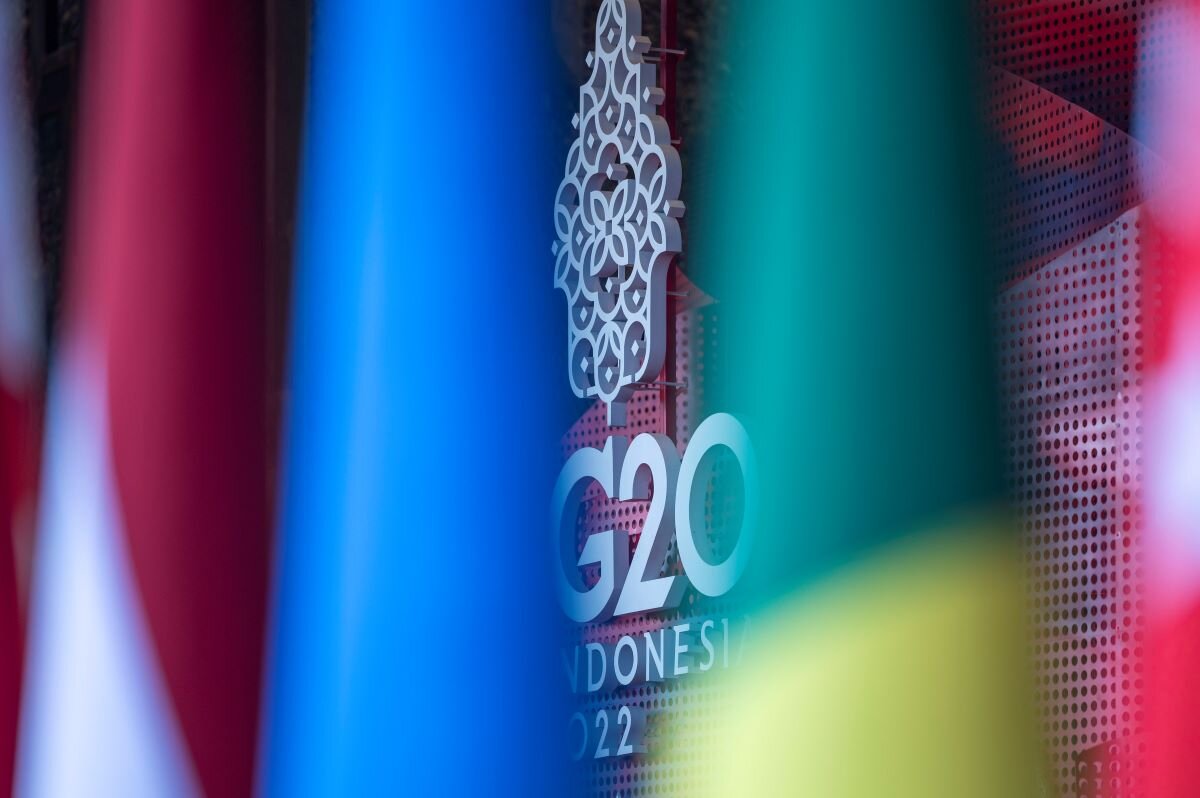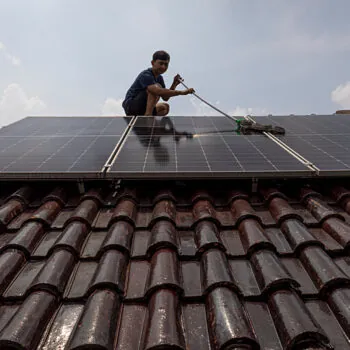- Despite high geopolitical tensions driven by Russia’s invasion of Ukraine, G20 leaders have sent a strong message to negotiators in Egypt to get a meaningful outcome from COP27.
- The G20 signalled the need for major financial system reforms to address global crises including climate change. They outlined the broad reforms needed and took useful steps, but clearly did not have consensus for rapid action across all reform areas. Unfinished business from this meeting will need to be taken forward urgently in 2023.
- Negotiators at COP27 now need to take their direction from this consensus to a deal on financing loss and damage, concrete plans for accelerating emissions reductions by agreeing global action to phase out all fossil fuels, and setting new political direction on the kinds of finance system transformation needed to deliver both climate and development goals.
Watch E3G’s press briefing on the G20 Leaders’ Summit and COP27 endgame
Geopolitics
The G20 showed that climate change is still the top geopolitical issue, one of the first things to address in solving other crises.
Nick Mabey, E3G Co-CEO said:
“Despite high geopolitical tensions driven by Russia’s invasion of Ukraine, the G20 leaders have sent an unexpectedly strong message on the need to accelerate collective action to tackle the energy, food, economic and climate crises. Leaders must now instruct their negotiators at COP27 to follow up these fine words with concrete outcomes”
Climate Diplomacy
Showing the fight for 1.5C does reflect global consensus, the G20 communique referred to the Glasgow Climate Pact’s calls to accelerate efforts to keep it within reach. The G20 called for countries to continue updating their NDCs. While the language is weaker than last year (an invitation to countries to enhance ambition rather than commitment to do so ‘where required’), it still reinforces the global direction of travel. The declaration calls for progress on loss and damage at COP – interestingly, in reference to finance, the call for enhancing innovative financing mechanisms could be a way to increase blocker countries’ comfort on new loss and damage funding arrangements.
Alex Scott, Climate Diplomacy and Geopolitics expert at E3G said:
“This G20 outcome shows that the political sentiment from the COP27 world leaders’ summit – recognising the gaps to a safer climate pathway and calling for acceleration and finance system transformation to deliver it – reflects the global consensus and direction of travel. It shows political will to do more on climate and food security in particular, including raising the ambition and implementation of climate plans.
“But stating that will is not enough – the G20 as major emitters and economically advantaged need to step up to build on this outcome at COP27. This means a deal of financing loss and damage and clarity on how doubling adaptation finance will be achieved, concrete plans for accelerating emissions reductions by agreeing global action to phase out all fossil fuels and setting new political direction on the kinds of finance system transformation needed to deliver both climate and development goals.”
Energy
The Indonesians, despite some significant pressure, leant into the language on coal phase down. The communique holds the line on the Glasgow Climate Pact language, including a commitment to “Accelerating efforts towards the phasedown of unabated coal power” and medium–term phase down of inefficient fuel subsidies.
Maria Pastukhova, Energy expert at E3G said:
“The G20 outcome signals that clean energy is firmly at the heart of global energy security – and that efforts to water down language on coal and clean energy have proven outdated in the context of economic realities. Now, G20 countries need to mirror this ambition at COP and at home – by taking action to reduce energy waste as fast as possible and work towards clear pathways out of fossil fuel dependency to strengthen economic and geopolitical resilience of the bloc.”
Camilla Fenning, Fossil Fuel transition expert at E3G said:
“It’s good that the Indonesian Presidency, fresh from yesterday’s announcement of a $20 bn deal for their Just Energy Transition Partnership, ensured the Glasgow Climate Pact commitments on coal phase down were reiterated, calling for “accelerating efforts towards the phasedown of unabated coal power” and referencing phase out of inefficient fossil fuel subsidies. The onus is on COP27 now to show ambition on phase out of coal and all fossil fuels.”
Financial system reform
The G20 has added to calls for financial system reforms to address global crises including climate change, which have also been evident at COP27. It has agreed some useful actions, e.g. a timeline for MDB Capital Adequacy reforms and further steps on debt relief. A lack of consensus on key reform issues, such as greening international financial regulation, is evident and makes the final text overly cautious in some areas.
Kate Levick, Associate Director for Sustainable Finance at E3G said:
“We welcome G20’s statements on financial system architecture, in particular around MDB reforms and sovereign debt. Regulatory reforms agreed under the G20 SF Roadmap are also important for financial system reform that will support a sustainable climate transition for all countries, and it is concerning to see so much emphasis on these being ‘voluntary’ and ‘flexible’.”
Available for comment
Alex Scott, Programme Lead, Climate Diplomacy & Geopolitics, EN
Climate diplomacy
alex.scott@e3g.org | +44 (0)7482 750 760
Maria Pastukhova, Senior Policy Advisor, Clean Economy, EN DE JA RU
International energy diplomacy, geopolitics of the energy transition, methane
maria.pastukhova@e3g.org | +49 (0) 160 901 67735
Camilla Fenning, Programme Lead, Fossil Fuel Transition, EN
Coal phase-out, energy transition, Southeast Asia and India
Camilla.fenning@e3g.org | +44 (0) 7961 047835
Kate Levick, Associate Director, Sustainable Finance, EN
International and UK sustainable finance, public and private sector finance, financial initiatives
Kate.levick@e3g.org | +44 (0) 7860 861225
Nick Mabey, co-CEO and co-founder, EN
Climate diplomacy, foreign policy, macroeconomics, COP
Nick.mabey@e3g.org | +44 (0)7949 768 771
Alden Meyer, Senior Associate, Climate Diplomacy & Geopolitics, EN
UNFCCC negotiations, mitigation ambition, climate finance and climate diplomacy
Alden.meyer@e3g.org | +1 202 378 8619
Notes to Editors
- E3G is an independent climate change think tank with a global outlook. We work on the frontier of the climate landscape, tackling the barriers and advancing the solutions to a safe climate. Our goal is to translate climate politics, economics and policies into action. About – E3G
- For further enquiries email press@e3g.org or phone +44 (0)7783 787 863
- To receive updates and analysis from COP27 via E3G’s daily media WhatsApp broadcast, register here.
- For a full list of E3G’s experts covering COP27 see our media advisory: What to expect from COP27 and the G20 Summit – E3G


